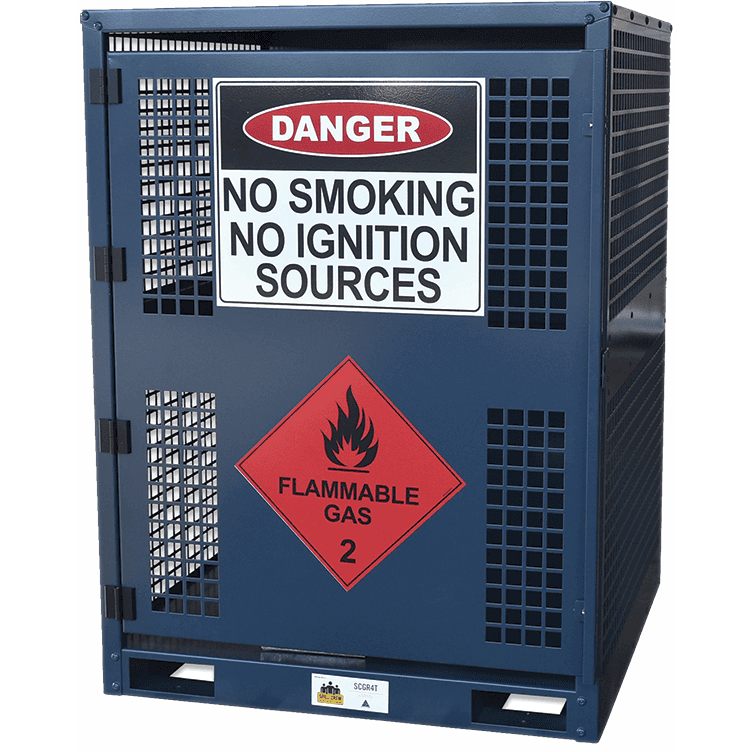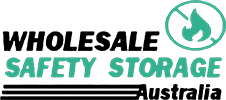Grilling in Safety
Boomerangs, Koalas, Kangaroos, Didgeridoos, Crocodile Dundee, Steve Irwin, and “Shrimps on the Barbie” (they’re called prawns by the way), the inclusion of the barbecue to the typical Australian stereotype means that grilling has been ingrained into our national identity. Honestly, I’m okay with that.
I mean, who doesn’t love a good barbecue now and then. Be it fish, steaks, burgers, vegetables, or PRAWNS, hanging out in the summer sun along with your mates, that’s a dream summer get-together. This is especially true with the year of lockdown we experienced back in 2020.
So you decided to knock off the cobwebs and treat yourself to a sizzling char-grilled steak. Well. Before you do that, you might want to get the ol’ grill in match condition first.
Firing up the grill requires fire. Who knew, huh? And that is where the fundamental danger of our barbecue stems from. Fire. LPG (liquefied petroleum gas) explosions that involve barbecues are not uncommon and have resulted in serious injuries and very extensive property damage. If you’re going to burn something, make sure it’s just what you’re cooking.
 Here are some tips to make sure that whenever your fancy hits you to cook on your grill, the only thing getting cooked is what you put inside it.
Here are some tips to make sure that whenever your fancy hits you to cook on your grill, the only thing getting cooked is what you put inside it.
BBQ Maintenance
1. Replace Your Gas Bottles (Cylinders): Gas cylinders are pressurised vessels filled with flammable chemicals. Let’s not mince words. They’re potentially bombs in the making. This is especially true if they appear to be damaged or rusty, compromised tanks might have leaks.
You should check your cylinders for leaks by brushing a soapy solution on them. Any leaks will show up when you see the solution bubbling. Check out the valves and your grill’s hose ends as well.
2. Check Your Hoses: Check your grill’s hoses for any cracks, stretching, bulging, or other signs of wear. It is wise to replace hoses every couple of years or so.
3. Check Connections: Check your BBQ’s fitting and connections. Make sure they are tight and are not leaking.
4. Get Your Cylinders Tested: Sure, you might already have checked the external condition of your Gas cylinder. Gas cylinders that are damaged or have not been tested for the past 10 years can’t be refilled.
Costing about $40 or under, testing also includes valve replacement. If you don’t want to go through the hassle of testing your old cylinders, then you can also get a new one in a cylinder swapping centre.
Cylinder Safety
Just like what was said before. A gas cylinder is a bomb if it fails. Do not be complacent with it. Just search for propane tank explosions on YouTube. Better be careful. Here are some tips.
1. Don’t Store It Indoors: Don’t… Just don’t. This includes your garage, shed, or under your house. If there are any gas leaks, they will be safely vented outside.
2. Keep Them Upright: Cylinders are equipped with safety valves that are designed to vent the pressure of the gas cylinders. These vents were designed to vent gas.
Inside cylinders there is liquid as well, hence, Liquefied Petroleum Gas. The reason that cylinders should be kept upright is to keep the liquid from causing a blockage of the pressure relief valve.
If the tank builds up pressure and the pressure relief valve doesn’t do its job right. The pressure will have nowhere to go, and IF the pressure goes over the limit of the cylinder. Boom. So if the valve is working properly then-no excess pressure buildup, no explosion risk.
3. Strap Down Gas Cylinders When Transporting: Just like keeping your cylinders upright. Strapping your cylinders down will avoid damaging both the safety valves and the structural integrity of the cylinder itself, reducing its capacity to vent and hold pressure.
4. Don’t Store Cylinders in Your Car: This should be common sense, but we’ll still say it. LPG vapour is toxic. If you inhale high concentrations of it, even for a short period, it can lead to unconsciousness and eventually death in a poorly ventilated area, which the inside of a car is poorly ventilated, especially when the windows are up.
For safely storing gas cylinders, we would like to suggest our range of 9 kg LPG Gas Cylinder cages. Our range is capable of storing from 2 to 16 BBQ bottles. With solid steel construction, well ventilated, protected from the elements, and most importantly follows Australian Standards, so you know it’s built to last. https://wssa.com.au/product-category/aerosol-and-gas-storage/bbq-lpg-gas-cylinder-cages/
Barbecue Safety
Yes. You need to be careful when cooking in your BBQ. Burnt food is the least of your problems when you improperly handle fire. So to give you a refresher, here are some guidelines when you plan to Barbecue
1. Use the Correct Kind of Gas: Yes, there are different fuels for different kinds of grills. Know what kind of gas your grill was designed to handle. There is usually a data plate on the side of the BBQ that tells you the correct fuel to use.
2. Don’t BBQ indoors: The fumes can be toxic. This includes carbon dioxide, the silent killer Carbon Monoxide, and other chemicals that come from burning the gas used.
3. Clear Around Your BBQ: Make sure you have ample clearance around your grill. Make sure there is nothing that can easily catch on fire like dried leaves, grass, and so on, clearing them out reduces the chances of your grill becoming a fire hazard.
4. Cut the Fat: No, we’re not telling you to go on a diet or something. We’re telling you that after cooking, remove the fat that has accumulated in your grill, the drippings some might call it, this is to avoid the risk of the fat combusting and becoming an uncontrollable fuel source for the fire. By cleaning the fat, you reduce the chances of a grease fire.
5. Don’t BBQ On a Windy Day: If it’s very windy, there is a huge chance that the wind will blow out the fire in your gas barbecue. When this happens. Turn off the gas.
When the wind blows out the fire in the burner, the gas will continue to come out. And since LPG is very cold, it will not immediately rise to the atmosphere. It will pool around in your BBQ and when you light it back up, an explosive ignition might occur. In layman’s terms, a fireball happens. When the burner fire goes out, turn off the gas. Open the grill. Let the gas inside vent out.
While Barbecuing is an excellent way to cook and as a social gathering exercise, it doesn’t mean there aren’t inherent dangers accompanying it, especially when a fire is concerned. Don’t be complacent. When it comes to Gas Cylinder Storage, we have plenty of options available for you.
So grill up and flame on!



